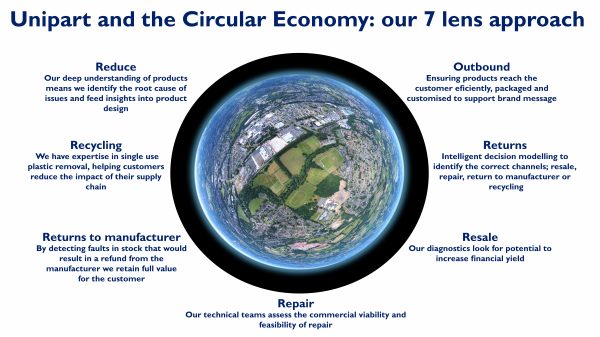Over the coming weeks and months we’ll be posting a series of articles, providing more information about our work and our commitment to sustainability and circular economic principles.
 A circular economy is an alternative to a traditional linear economy (make, use, dispose) in which we keep resources in use for as long as possible, extract the maximum value from them while in use, then recover and regenerate products and materials at the end of each service life. Unipart’s lifecycle solutions promote sustainability, including the responsible recovery, repurpose, resale and recycling of materials in line with national and global regulations and our own sustainability targets.
A circular economy is an alternative to a traditional linear economy (make, use, dispose) in which we keep resources in use for as long as possible, extract the maximum value from them while in use, then recover and regenerate products and materials at the end of each service life. Unipart’s lifecycle solutions promote sustainability, including the responsible recovery, repurpose, resale and recycling of materials in line with national and global regulations and our own sustainability targets.
Championing circular economic principles is helping Unipart and its customers make positive environmental changes in the ways products are both designed and used. By rethinking and redesigning products and processes, we are also helping to significantly reduce waste and pollution – keeping components ‘alive’, rather than discarding them to landfill. In the modern world resources are precious and certainly not infinite, which means today’s products must be viewed as providing the resources of tomorrow. We are factoring this new long-term approach into our operations for our customers, assessing how components can be stripped down and used again as part of the product design process and working with partners to rethink and re-evaluate business practices. Delivering a circular economy means reducing waste to a minimum and reusing materials to create further value again and again.
